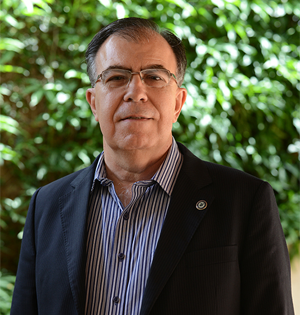Course: How to elaborate a EIV Neighborhood Impact Study
Objective: Capacitate professionals for the elaboration of the Neighborhood Impact Study.
Target audience: architects, engineers, entrepreneurs and executives in the business of construction, students.
Workload: 8 hours.
More Information’s
The Neighborhood Impact Study is a technical document prepared prior to the issuance of licenses or authorizations for construction, expansion or operation of private or public enterprises in urban area. It is essential to understand and elaborate the preventive measures and to avoid the imbalance in urban growth, in addition to ensuring minimum conditions of occupation of the habitable spaces.
The EIV contemplates the potential positive and negative effects of the project or activity as to the quality of life of the population resident in the area and nearby. The function of control, prevention and precaution of EIV ensures the evaluation of the works and activities that can potentially cause environmental and urban impacts.
Some aspects must be addressed, as:
I. Population density;
II. Urban and community equipment;
III. Soil use and occupation;
IV. Real estate valuation;
V. Traffic increase and demand for public transport;
VI. Ventilation and lighting;
VII. Urban landscape and natural and cultural heritage.
The EIV is being implemented in the Brazilian municipalities over the last decade and must be in the Master Plan of the Municipalities as technical document required prior to the issuance of licenses or authorizations for construction, expansion or operation of private or public enterprises in urban areas, which produce significant impacts to the neighborhood or surroundings, it’s ideal that the municipality presents which projects are subject to the approval of the EIV/RIV.
During the course, will be addressed topics such as: environmental legislation important to cities and for civil construction, environmental and urban impacts, mitigation and control forms, in addition to the presentation of case studies developed by Master.
Programmatic content
- Introduction – context and importance of EIV;
- Cities Statute (10,257 Law/2001) and EIV requirement;
- Concept of EIV/RIV;
- What address the EIV?;
- Democratic management of cities – EIV advertising, public hearings;
- Differences of EIV and Environmental studies;
- Environmental Legislation and urbanism: important topics for the cities (noise, urban mobility, sanitation, water management, solid waste, among others);
- Municipal Law – Master Plan, zoning and soil use and occupation, postures, Works, etc. How to integrate Federal, State and Local standards?;
- Steps for preparation of EIV;
- Business location and area of influence;
- Impacts assessment and mitigating or compensatory measures;
- Examples – case studies;
- Exercises;
- Final thoughts.
Speaker
Fernando de Barros, Master Ambiental Director.
Graduated in Civil Engineering, Pontifícia Universidade Católica, specialist in Environmental planning and management by Cândido Mendes University in Rio de Janeiro and Master in engineering of buildings and sanitation by Universidade Estadual de Londrina. Was President of the Municipal Council of the Environment of Londrina (2006-2011).
With 35 years of experience in the field of construction and real estate, having built more than 600 thousand square meters of commercial, residential and industrial works. Barros was Director of a metal-mechanical industry for 10 years, Director of a retailer company of home improvement and constructions products for three years and responsible for the implementation of a precast concrete industry.
In 2005, began his first work as a consultant in the environmental area. As technical manager of the Master Ambiental. Leads a multidisciplinary team in different projects in the area of engineering and environmental consultancy. As technical manager Master, has experience in coordinating more than 150 EIVs in several municipalities of Brazil, with experience in large projects, in states as Rio de Janeiro, São Paulo, Paraná, Santa Catarina, Goiás, Mato Grosso, Bahia, among others, serving clients like BR MALLs, Catuaí Mall, Dehuff, Viação Garcia and Galmo construction company. Stands out an EIV for a new factory of JAC MOTORS in Camaçari, Bahia and light rail vehicle (VLT) in Goiania, Goiás, for ODEBRECHT.






